By Henry A. Giroux, Truthout
In the age of Trump, history neither informs the present nor haunts it with repressed memories of the past. It simply disappears. Memory has been hijacked. This is especially troubling when the «mobilizing passions» of a fascist past now emerge in the unceasing stream of hate, bigotry, lies and militarism that are endlessly circulated and reproduced at the highest levels of government and in powerful conservative media, such as Fox News, Breitbart News, conservative talk radio stations and alt-right social media. Power, culture, politics, finance and everyday life now merge in ways that are unprecedented and pose a threat to democracies all over the world. This mix of old media and new digitally driven systems of production and consumption are not merely systems, but ecologies that produce, shape and sustain ideas, desires and modes of agency with unprecedented power and influence. Informal educational apparatuses, particularly the corporate-controlled media, appear increasingly to be on the side of tyranny. In fact, it would be difficult to overly stress the growing pedagogical importance of the old and new media and the power they now have on the political imaginations of countless Americans. This is particularly true of right-wing media empires, such as those owned by Rupert Murdoch, as well as powerful corporate entities such as Clearwater, which dominates the radio airwaves with its ownership of over 1,250 stations. In the sphere of television ownership and control, powerful corporate entities have emerged, such as Sinclair Broadcast Group, which owns the largest number of TV stations in the United States. In addition, right-wing hosts, such as Rush Limbaugh and Sean Hannity have an audience in the millions. Right-wing educational apparatuses shape much of what Americans watch and listen to, and appear to influence all of what Trump watches and hears. The impact of conservative media has had a dangerous effect on American culture and politics, and has played the most prominent role in channeling populist anger and electing Trump to the presidency. We are now witnessing the effects of this media machine. The first casualty of the Trump era is truth, the second is moral responsibility, the third is any vestige of justice, and the fourth is a massive increase in human misery and suffering for millions.
Instead of refusing to cooperate with evil, Americans increasingly find themselves in a society in which those in commanding positions of power and influence exhibit a tacit approval of the emerging authoritarian strains and acute social problems undermining democratic institutions and rules of law. As such, they remain silent and therefore, complicit in the face of such assaults on American democracy. Ideological extremism and a stark indifference to the lies and ruthless polices of the Trump administration have turned the Republican Party into a party of collaborators, not unlike the Vichy government that collaborated with the Nazis in the 1940s. Both groups bought into the script of ultra-nationalism, encouraged anti-Semitic mobs, embraced a militant masculinity, demonized racial and ethnic others, supported an unchecked militarism and fantasies of empire, and sanctioned state violence at home and abroad.
Words carry power and enable certain actions; they also establish the grounds for legitimating repressive policies and practices.
This is not to propose that those who support Trump are all Nazis in suits. On the contrary, it is meant to suggest a more updated danger in which people with power have turned their backs on the cautionary histories of the fascist and Nazi regimes, and in doing so, have willingly embraced authoritarian messages and tropes. Rather than Nazis in suits, we have a growing culture of social and historical amnesia that enables those who are responsible for the misery, anger and pain that has accompanied the long reign of casino capitalism to remain silent for their role and complicity in the comeback of fascism in the United States. This normalization of fascism can be seen in the way in which language that was once an object of critique in liberal democracies loses its negative connotation and becomes the opposite in the Trump administration. Politics, power and human suffering are now framed outside of the realm of historical memory. What is forgotten is that history teaches us something about the transformation and mobilization of language into an instrument of war and violence. As Richard J. Evans observes in his The Third Reich in Power:
Words that in a normal, civilized society had a negative connotation acquired the opposite sense under Nazism … so that ‘fanatical’, ‘brutal’, ‘ruthless’, ‘uncompromising’, ‘hard’ all became words of praise instead of disapproval… In the hands of the Nazi propaganda apparatus, the German language became strident, aggressive and militaristic. Commonplace matters were described in terms more suited to the battlefield. The language itself began to be mobilized for war.
Fantasies of absolute control, racial cleansing, unchecked militarism and class warfare are at the heart of much of the American imagination. This is a dystopian imagination marked by hollow words, an imagination pillaged of any substantive meaning, cleansed of compassion and used to legitimate the notion that alternative worlds are impossible to entertain. There is more at work here than shrinking political horizons. What we are witnessing is a closing of the political and a full-scale attack on moral outrage, thoughtful reasoning, collective resistance and radical imagination. Trump has normalized the unthinkable, legitimated the inexcusable and defended the indefensible.
Of course, Trump is only a symptom of the economic, political and ideological rot at the heart of casino capitalism, with its growing authoritarianism and social and political injustices that have been festering in the United States with great intensity since the late 1970s. It was at that point in US history when both political parties decided that matters of community, the public good, the general welfare and democracy itself were a threat to the fundamental beliefs of the financial elite and the institutions driving casino capitalism. As Ronald Reagan made clear, government was the problem. Consequently, it was framed as the enemy of freedom and purged for assuming any responsibility for a range of basic social needs. Individual responsibility took the place of the welfare state, compassion gave way to self-interest, manufacturing was replaced by the toxic power of financialization, and a rampaging inequality left the bottom half of the US population without jobs, a future of meaningful work or a life of dignity.
The call for political unity transforms quickly into the use of force and exclusionary violence to impose the authority of a tyrannical regime.
Trump has added a new swagger and unapologetic posture to this concoction of massive inequality, systemic racism, American exceptionalism and ultra-nationalism. He embodies a form of populist authoritarianism that not only rejects an egalitarian notion of citizenship, but embraces a nativism and fear of democracy that is at the heart of any fascist regime.
How else to explain a sitting president announcing to a crowd that Democratic Party congressional members who refused to clap for parts of his State of the Union address were «un-American» and «treasonous»? This charge is made all the more disturbing given that the White House promoted this speech as one that would emphasize «bipartisanship and national unity.» Words carry power and enable certain actions; they also establish the grounds for legitimating repressive policies and practices. Such threats are not a joking matter and cannot be dismissed as merely a slip of the tongue. When the president states publicly that his political opponents have committed a treasonous act — one that is punishable by death — because they refused to offer up sycophantic praise, the plague of fascism is not far away. His call for unity takes a dark turn under such circumstances and emulates a fascist past in which the call for political unity transforms quickly into the use of force and exclusionary violence to impose the authority of a tyrannical regime.
In Trump’s world, the authoritarian mindset has been resurrected, bent on exhibiting a contempt for the truth, ethics and alleged human weakness. For Trump, success amounts to acting with impunity, using government power to sell or to license his brand, hawking the allure of power and wealth, and finding pleasure in producing a culture of impunity, selfishness and state-sanctioned violence. Trump is a master of performance as a form of mass entertainment. This approach to politics echoes the merging of the spectacle with an ethical abandonment reminiscent of past fascist regimes. As Naomi Klein rightly argues in No Is Not Enough, Trump «approaches everything as a spectacle» and edits «reality to fit his narrative.»
As the bully-in-chief, he militarizes speech while producing a culture meant to embrace his brand of authoritarianism. This project is most evident in his speeches and policies, which pit white working- and middle-class males against people of color, men against women, and white nationalists against various ethnic, immigrant and religious groups. Trump is a master of theater and diversion, and the mainstream press furthers this attack on critical exchange by glossing over his massive assault on the planet and enactment of policies, such as the GOP tax cuts, which are willfully designed to redistribute wealth upward to his fellow super-rich billionaires. Trump’s alleged affair with adult film star Stormy Daniels garners far more headlines than his deregulation of oil and gas industries and his dismantling of environment protections.
Economic pillage has reached new and extreme levels and is now accompanied by a ravaging culture of viciousness and massive levels of exploitation and human suffering. Trump has turned language into a weapon with his endless lies and support for white nationalism, nativism, racism and state violence. This is a language that legitimates ignorance while producing an active silence and complicity in the face of an emerging corporate fascist state.
Like most authoritarians, Trump demands loyalty and team membership from all those under his power, and he hates those elements of a democracy — such as the courts and the critical media — that dare to challenge him. Echoes of the past come to life in his call for giant military parades, enabling White House press secretary Sarah Sanders to call people who disagree with his policies «un-American,» and sanctioning his Department of Justice to issue a «chilling warning,» threatening to arrest and charge mayors with a federal crime who do not implement his anti-immigration policies and racist assaults on immigrants. What can be learned from past periods of tyranny is that the embrace of lawlessness is often followed by a climate of terror and repression that is the essence of fascism.
Whether Trump is a direct replica of the Nazi regime has little relevance compared to the serious challenges he poses.
In Trump’s world view, the call for limitless loyalty reflects more than an insufferable act of vanity and insecurity; it is a weaponized threat to those who dare to challenge Trump’s assumption that he is above the law and can have his way on matters of corruption, collusion and a possible obstruction of justice. Trump is an ominous threat to democracy and lives, as Masha Gessen observes, «surrounded by enemies, shadowed by danger, forever perched on the precipice.» Moreover, he has enormous support from his Vichy-like minions in Congress, among the ultra-rich bankers and hedge fund managers, and the corporate elite. His trillion-dollar tax cut has convinced corporate America he is their best ally. He has, in not too subtle ways, also convinced a wide range of far-right extremists extending from the Ku Klux Klan and neo-Nazis to the deeply racist and fascist «alt-right» movement, that he shares their hatred of people of color, immigrants and Jews. Imaginary horrors inhabit this new corporate dystopian world and frighteningly resemble shades of a terrifying past that once led to unimaginable acts of genocide, concentration camps and a devastating world war. Nowhere is this vision more succinctly contained than in Trump’s first State of the Union Address and the response it garnered.
State of Disunion
An act of doublespeak preceded Donald Trump’s first State of the Union Address. Billed by the White House as a speech that would be «unifying» and marked by a tone of «bipartisanship,» the speech was actually steeped in divisiveness, fear, racism, warmongering, nativism and immigrant bashing. It once again displayed Trump’s contempt for democracy.
Claiming «all Americans deserve accountability and respect,» Trump nevertheless spent ample time in his speech equating undocumented immigrants with the criminal gang MS-13, regardless of the fact that undocumented immigrants commit fewer crimes than US citizens. (As Juan Cole points out, «Americans murdered 17,250 other Americans in 2016. Almost none of the perpetrators was an undocumented worker, contrary to the impression Trump gave.»)
For Trump, as with most demagogues, fear is the most valued currency of politics. In his speech, he suggested that the visa lottery system and «chain migration» — in which individuals can migrate through the sponsorship of their family — posed a threat to the US, presenting «risks we can just no longer afford.» In response to the Dreamers, he moved between allegedly supporting their bid for citizenship to suggesting they were part of a culture of criminality. At one point, he stated in a not-too-subtle expression of derision that «Americans are dreamers too.» This was a gesture to his white nationalist base. On Twitter, David Duke, the former head of the Ku Klux Klan, cheered over that remark. Trump had nothing to say about the challenges undocumented immigrants face, nor did he express any understanding of the fear and insecurity hanging over the heads of 800,000 Dreamers who could be deported.
Trump also indicated that he was not going to close Guantánamo, and once again argued that «terrorists should be treated like terrorists.» Given the history of torture associated with Guantánamo and the past crimes and abuses that took place under the mantle of the «war on terror,» Trump’s remarks should raise a red flag, not only because torture is a war crime, but also because the comment further accelerated the paranoia, nihilist passions and apocalyptic populism that feeds his base.
Fascism is hardly a relic of the past or a static political and ideological system.
Pointing to menacing enemies all around the world, Trump exhibited his love for all things war-like and militaristic, and his support for expanding the nuclear arsenal and the military budget. He also called on «the Congress to empower every Cabinet secretary with the authority to reward good workers — and to remove federal employees who undermine the public trust or fail the American people.» Given his firing of James Comey, his threat to fire Jeff Sessions, and more recently his suggestion that he might fire Deputy Attorney General Rod J. Rosenstein — all of whom allegedly displayed disloyalty by not dismantling the Russian investigation conducted by Special Council Mueller — Trump seems likely to make good on this promise to rid the federal workforce of those who disagree with him, allowing him to fill civil service jobs with friends, family members and sycophants. This is about more than Trump’s disdain for the separation of power, the independence of other government agencies, or his attack on potential whistleblowers; it is about amassing power and instilling fear in those he appoints to government positions if they dare act to hold power accountable. This is what happens when democracies turn into fascist states.
Trump is worse than almost anyone imagined, and while his critics across the ideological spectrum have begun to go after him, they rarely focus on how dangerous he is, hesitant to argue that he is not only the enemy of democracy, but symptomatic of the powerful political, economic and cultural forces shaping the new US fascism.
There are some critics who claim that Trump is simply a weak president whose ineptness is being countered by «a robust democratic culture and set of institutions,» and not much more than a passing moment in history. Others, such as Wendy Brown and Nancy Fraser, view him as an authoritarian expression of right-wing populism and an outgrowth of neoliberal politics and policies. While many historians, such as Timothy Snyder and Robert O. Paxton, analyze him in terms that echo some elements of a fascist past, some conservatives such as David Frum view him as a modern-day self-obsessed, emotionally needy demagogue whose assault on democracy needs to be taken seriously, and that whether or not he is a fascist is not as important as what he plans to do with his power. For Frum, there is a real danger that people will retreat into their private worlds, become cynical and enable a slide into a form of tyranny that would become difficult to defeat. Others, like Corey Robin, argue that we overstep a theoretical boundary when comparing Trump directly to Hitler. According to Robin, Trump bears no relationship to Hitler or the policies of the Third Reich. Robin not only dismisses the threat that Trump poses to the values and institutions of democracy, but plays down the growing threat of authoritarianism in the United States. For Robin, Trump has failed to institute many of his policies, and as such, is just a weak politician with little actual power. Not only does Robin focus too much on the person of Trump, but he is relatively silent about the forces that produced him and the danger these proto-fascist social formations now pose to those who are the objects of the administration’s racist, sexist and xenophobic taunts and policies.
The ghosts of fascism should terrify us, but most importantly, they should educate us and imbue us with a spirit of civic justice.
As Jeffrey C. Isaac observes, whether Trump is a direct replica of the Nazi regime has little relevance compared to the serious challenges he poses; for instance, to the DACA children and their families, the poor, undocumented immigrants and a range of other groups. Moreover, authoritarianism is looming in the air and can be seen in the number of oppressive and regressive policies already put into place by the Trump administration that will have a long-term effect on the United States. These include the $1.5 trillion giveaway in the new tax code, the expansion of the military-industrial complex, the elimination of Obamacare’s individual mandate, the US recognition of Jerusalem as Israel’s capital, and a range of deregulations that will impact negatively on the environment for years to come. In addition, there is the threat of a nuclear war, the disappearance of health care for the most vulnerable, the attack on free speech and the media, and the rise of the punishing state and the increasing criminalization of social problems. As Richard J. Evans, the renowned British historian, observes, «Violence indeed was at the heart of the Nazi enterprise. Every democracy that perishes dies in a different way, because every democracy is situated in specific historical circumstances.»
US society has entered a dangerous stage in its history. After 40 years of neoliberalism and systemic racism, many Americans lack a critical language that offers a consistent narrative that enables them to understand gutted wages, lost pensions, widespread uncertainty and collapsing identities due to feeling disposable, the loss of meaningful work and a formative culture steeped in violence, cruelty and an obsession with greed. Moreover, since 9/11, Americans have been bombarded by a culture of fear and consumerism that both dampens their willingness to be critical agents and depoliticizes them. Everyone is now a suspect or a consumer, but hardly a critically engaged citizen. Others are depoliticized because of the ravages of debt, poverty and the daily struggle to survive — problems made all the worse by Trump’s tax and health policies. And while there is no perfect mirror, it has become all the more difficult for many people to recognize how the «crystalized elements» of totalitarianism have emerged in the shape of an American-style fascism. What has been forgotten by too many intellectuals, critics, educators and politicians is that fascism is hardly a relic of the past or a static political and ideological system.
Trump is not in possession of storm troopers, concentration camps or concocting plans for genocidal acts — at least, not at the moment. But that does not mean that fascism is a moment frozen in history and has no bearing on the present. As Hannah Arendt, Sheldon Wolin and others have taught us, totalitarian regimes come in many forms and their elements can come together in different configurations. Rather than dismiss the notion that the organizing principles and fluctuating elements of fascism are still with us, a more appropriate response to Trump’s rise to power is to raise questions about what elements of his government signal the emergence of a fascism suited to a contemporary and distinctively US political, economic and cultural landscape.
What seems indisputable is that under Trump, democracy has become the enemy of power, politics and finance. Adam Gopnik refutes the notion that Trumpism will simply fade away in the end, and argues that comparisons between the current historical moment and fascism are much needed. He writes:
Needless to say, the degradation of public discourse, the acceleration of grotesque lying, the legitimization of hatred and name-calling, are hard to imagine vanishing like the winter snows that Trump thinks climate change is supposed to prevent. The belief that somehow all these things will somehow just go away in a few years’ time does seem not merely unduly optimistic but crazily so. In any case, the trouble isn’t just what the Trumpists may yet do; it is what they are doing now. American history has already been altered by their actions — institutions emptied out, historical continuities destroyed, traditions of decency savaged — in ways that will not be easy to rehabilitate.
There is nothing new about the possibility of authoritarianism in a particularly distinctive guise coming to the US. Nor is there a shortage of works illuminating the horrors of fascism. Fiction writers ranging from George Orwell, Sinclair Lewis and Aldous Huxley to Margaret Atwood, Philip K. Dick and Philip Roth have sounded the alarm in often brilliant and insightful terms. Politicians such as Henry Wallace wrote about American fascism, as did a range of theorists, such as Umberto Eco, Arendt and Paxton, who tried to understand its emergence, attractions and effects. What they all had in common was an awareness of the changing nature of tyranny and how it could happen under a diverse set of historical, economic and social circumstances. They also seem to share Philip Roth’s insistence that we all have an obligation to recognize «the terror of the unforeseen» that hides in the shadows of censorship, makes power invisible and gains in strength in the absence of historical memory. A warning indeed.
Trump represents a distinctive and dangerous form of US-bred authoritarianism, but at the same time, he is the outcome of a past that needs to be remembered, analyzed and engaged for the lessons it can teach us about the present. Not only has Trump «normalized the unspeakable» and in some cases, the unthinkable, he has also forced us to ask questions we have never asked before about capitalism, power, politics, and yes, courage itself. In part, this means recovering a language for politics, civic life, the public good, citizenship and justice that has real substance. One challenge is to confront the horrors of capitalism and its transformation into a form of fascism under Trump. This cannot happen without a revolution in consciousness, one that makes education central to politics.
Moreover, as Fredric Jameson has suggested, such a revolution cannot take place by limiting our choices to a fixation on the «impossible present.» Nor can it take place by limiting ourselves to a language of critique and a narrow focus on individual issues. What is needed is also a language of hope and a comprehensive politics that draws from history and imagines a future that does not imitate the present. Under such circumstances, the language of critique and hope can be enlisted to create a broad-based and powerful social movement that both refuses to equate capitalism with democracy and moves toward creating a radical democracy. William Faulkner once remarked that we live with the ghosts of the past, or to be more precise: «The past is never dead. It’s not even past.»
However, we are not only living with the ghosts of a dark past; it is also true that the ghosts of history can be critically engaged and transformed into a democratic politics for the future. The Nazi regime is more than a frozen moment in history. It is a warning from the past and a window into the growing threat Trumpism poses to democracy. The ghosts of fascism should terrify us, but most importantly, they should educate us and imbue us with a spirit of civic justice and collective courage in the fight for a substantive and inclusive democracy. The stakes are too high to remain complacent, cynical or simply outraged. A crisis of memory, history, agency and justice has mushroomed and opened up the abyss of a fascist nightmare. Now is the time to talk back, embrace the radical imagination in private and public, and create united mass based coalitions in which the collective dream for a radical democracy becomes a reality. There is no other choice.
Source:
http://www.truth-out.org/news/item/43529-the-ghost-of-fascism-in-the-age-of-trump
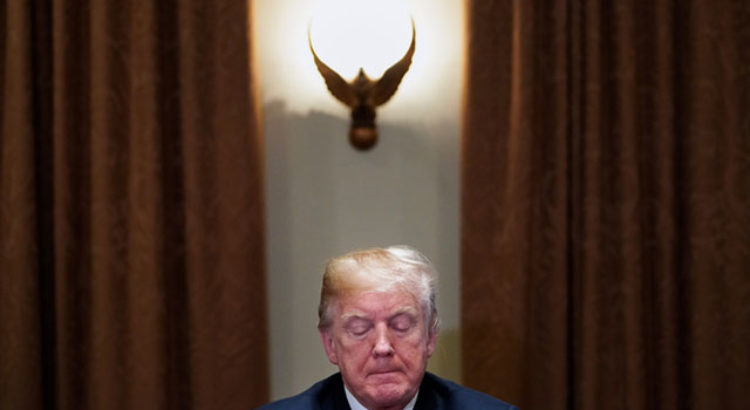
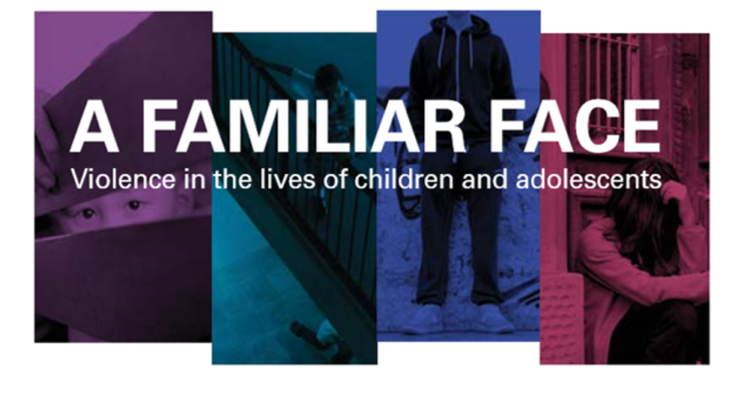


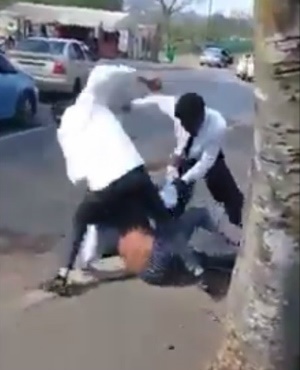
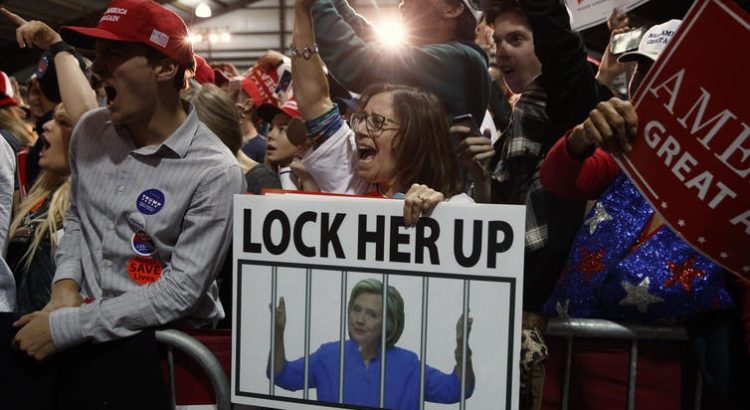
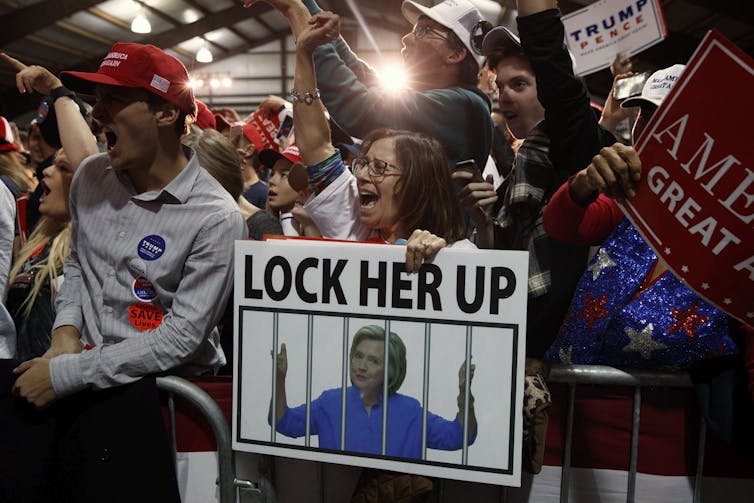
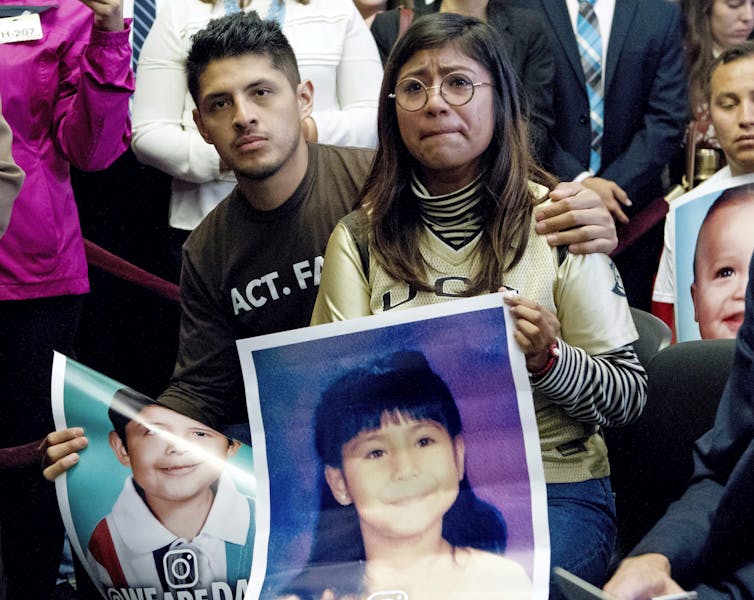






 Users Today : 57
Users Today : 57 Total Users : 35459523
Total Users : 35459523 Views Today : 85
Views Today : 85 Total views : 3417843
Total views : 3417843